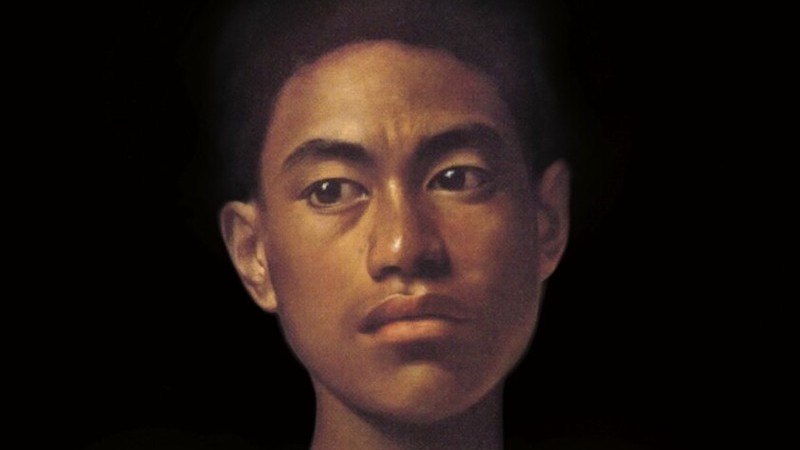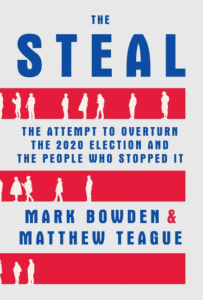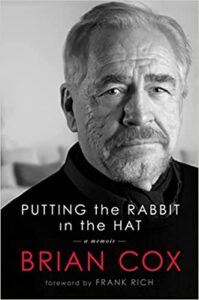
Our five alarm fire of fantabulous reviews this week includes Andrea Long Chu on Hanya Yanagihara’s To Paradise, Molly Young on Jessamine Chan’s The School for Good Mothers, Todd S. Purdum on Mark Bowden & Matthew Teague’s The Steal, Claire Dederer on Jami Attenberg’s I Came All This Way to Meet You, and Louis Bayard on Brian Cox’s Putting the Rabbit in the Hat.
“This is Yanagihara’s principle: If true misery exists, then so might true love. That simple idea, childlike in its brutality, informs all her fiction. Indeed, the author appears unable, or unwilling, to conceive love outside of life support; without suffering, the inherent monstrosity of love—its greed, its destructiveness—cannot be justified…In Yanagihara’s new novel, To Paradise, which tells three tales of people fleeing one broken utopia for another, the misery principle has become airborne, passing aerosol-like from person to person while retaining its essential purpose—to allow the author to insert herself as a sinister kind of caretaker, poisoning her characters in order to nurse them lovingly back to health … Like its predecessor, To Paradise is a book in which horrible things happen to people for no reason. The agents of misery this time have become literally inhuman: cancer, HIV, epilepsy, functional neurologic disorder, a toxic antiviral drug, the unidentified viral hemorrhagic fever that will fuel the next pandemic. A virus makes perfect sense as Yanagihara’s final avatar after three novels. The anguish it visits on humanity—illness, death, social collapse—is just an indifferent side effect of its pointless reproductive cycle. Biologists do not even agree on whether viruses are living organisms. A virus wants nothing, feels nothing, knows nothing; at most, a virus is a little life. This is ideal for Yanagihara: pure suffering, undiluted by politics or psychology, by history or language or even sex. Free of meaning, it may more perfectly serve the author’s higher purpose … Not even love will save Yanagihara’s characters. Her fantasies of suffering and illness are designed only to produce a very specific kind of love, and this love is not curative but palliative—it results, sooner or later, in the death of the thing.”
–Andrea Long Chu on Hanya Yanagihara’s To Paradise (Vulture)
“The ‘wrongfully accused person’ plot is terrifying because it dramatizes two extremely common scenarios: being misunderstood and being ignored … The School for Good Mothers, is a crafty and spellbinding twist on this genre … Chan poses a grim question: What happens to a person when she has no way to beat an intolerable system and no way to escape it? There is no winning in rehab, only endless ways to lose … The novel’s themes of repression and technology recall Kazuo Ishiguro’s Never Let Me Go; its sense of doom and violated autonomy, the work of Philip K. Dick, if Dick had gobbled fewer amphetamines; its pervasive air of injustice, Harrison Ford as Dr. Kimble in The Fugitive, pounding his fist on an interrogation room table as a detective with disturbingly sculpted hair says, ‘Book him.’ Chan’s novel is too original to come off as a purée of influences. She renders Frida’s cornered-animal consciousness in clipped and twitchy prose so effective that I had to pause every few pages to unclench my fists … Chan’s ideas are livid, but her prose is cool in temperature, and the effect is of an extended-release drug that doesn’t peak until long after you’ve swallowed it. One test of speculative fiction is whether or not it gives you nightmares, and when mine came—I knew they would—it was a full week after I’d finished this time bomb of a book.”
–Molly Young on Jessamine Chan’s The School for Good Mothers (The New York Times Book Review)

“The strength of The Steal, Mark Bowden and Matthew Teague’s meticulous micro-narrative published on the one-year anniversary of the attacks, is that it zooms in through the forest and down to the grassroots, where a deluded assortment of self-styled patriots sought to subvert democracy in the name of saving it, and a brave band of state and local officials—most of them Trump-supporting Republicans, in fact—actually did save it. Just barely … It paints a disturbing picture of ordinary citizens’ willingness to believe any online rumor that fits their prejudices, in a digital universe where ‘all information is weightless’ … Perhaps the book’s most troubling message—largely unstated but detailed in daily news headlines from G.O.P.-controlled state legislatures around the country—is the degree to which the professional election administrators who saved the day for democracy are on track to be replaced by partisan hacks in 2024. In that unnerving sense, the riveting story told in this thoughtful book is still profoundly unfinished.”
–Todd S. Purdum on Mark Bowden & Matthew Teague’s The Steal: The Attempt to Overturn the 2020 Election and the People Who Stopped It (Air Mail)
“Thrumming along underneath all this, animating the book, is Attenberg’s life’s organizing principle: the drive to become a writer. She brings to the subject her gifts as a novelist: a fierce impulse toward honesty, a companionably cranky voice and an interest in the complicated, bobbing and weaving ways in which people navigate their desires … Rarely do contemporary writers allow themselves to speak so freely about their careers; more commonly we see a lot of disaffection about the idea of ambition itself. Attenberg’s objectives, her pride and her desire fill every page of this book. I, for one, found it a relief. She has the writer’s fine-tuned sense of her own place in the literary cosmos … I Came All This Way to Meet You is at its most affecting when Attenberg follows the darker thread of her own experience … My main complaint about this one is structural: I Came All This Way to Meet You is arranged as a memoir in essays. This is not automatically a bad thing, but recently too many writers (and editors) have seemed to use this format as a way to dodge the exigencies of actual storytelling … Her voice and her frankness lead the way through what can sometimes feel like a maze — but the satisfactions are thick on the ground, and we follow. And when we are finished, we hold in our hands the promised ending, the book itself.”
–Claire Dederer on Jami Attenberg’s I Came All This Way to Meet You (The New York Times Book Review)

“When thinking about Brian Cox, it’s hard not to call up the two-word Anglo-Saxon phrase he so punctually spouts on HBO’s Succession. (The second word is ‘off.’) Hard, too, not to hear that phrase rumbling beneath the lines of Cox’s piquant, digressive memoir, Putting the Rabbit in the Hat, which tracks his journey from embattled working-class lad in Dundee, Scotland, to, at age 75, improbable pop-culture icon—and which forfeits none of the spiky candor that got him there … if there’s any thread that ties together Cox’s crowded oeuvre—more than 230 acting credits, ranging from Trotsky to Churchill to Agamemnon—it’s that sense of a secret knowledge, a barely cloaked aggression, thrumming beneath his roughened skin … don’t get him started on directors with their useless notes or actors who decide to rewrite their lines…Or actors in general, who are ‘whores for praise, locked into approbation, capable of killing our offspring in return for validation and living only for applause, both literally and figuratively.’ Cox very much includes himself in that description and cops as well to being an unfaithful husband, a ‘fairly crappy father’ and ‘a little bit of a diva.’ Perhaps it is this substrate of self-knowledge that most clearly separates him from the deeply unintrospective fellow he inhabits on HBO. Well, that and his New York state medical marijuana card and the unstinting devotion to his own craft.”
–Louis Bayard on Brian Cox’s Putting the Rabbit in the Hat (The Washington Post)

